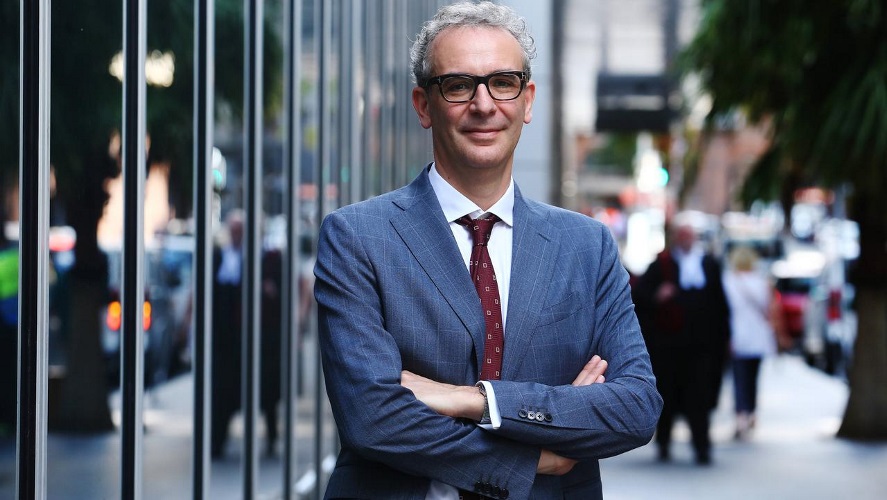
The sooner we bring the scientists into the debate about sustainability investing the better.
Image: WEF/iStockphoto
- How can the financial sector really make capital have an environmentally and socially sustainable positive impact on our planet and humanity?
- Disclosure and accounting rules need to go beyond financial materiality towards integrating full environmental and social costs of business.
- We need to bring scientists into the debate on how to embed science and the economic impact capital has in corporate financial statements.
In December, I happened to be in Montreal, Canada at the same time as the United Nations (UN) conference on Biodiversity, COP15. As I was taking a stroll, I literally walked into a peaceful protest taking place downtown. The protest was against the UN conference.
In the previous days, several other protests had also taken place. The protestors’ argument was that an agreement to protect biodiversity would give the impression that the issue was being addressed, but such an impression was not backed up by reality. The illusion of progress could make things worse.
At around the same time, a research paper, “The End of ESG”, was published. In the paper, Alex Edmans, Finance Professor at the London Business School, argues that: “ESG is both extremely important and nothing special. It’s extremely important because it’s critical to long term value… Thus, ESG doesn’t need a specialized term… It’s investing… We want great companies, not just companies that are great at ESG.”
If you are confused, you are not alone. And it is not easy to make sense of it.
Impact of capital
Clarity starts from focusing on the concept of “capital”. As investors, we play an important role in capital allocation. Such financial capital will be used by management to run daily operations, which has an impact on the environment and society. Our analysis suggests that the economic life of such operating capital for the non-financial sector is 14 years, with a remaining life of 7 years. The life of invested capital can vary much going from five years for IT equipment to as high as 40 years for some infrastructure investments.
Such capital does have an impact on the environment and society, from water pollution to modern slavery and the climate crisis.
In Alex Edman’s view, I see the thinking of Adam Smith, who through his famous book “The Wealth of Nations” described how free markets can incentivize individuals, acting in their own self-interest, to produce what is societally necessary. This idea was further elaborated by Milton Friedman and his doctrine that an entity’s greatest responsibility lies in the satisfaction of the shareholders.
The problem with this view is that, as Professor Sir Partha Dasgupta, author of the UK government-commissioned report “The Economics of Biodiversity”, convincingly shows, individual self-interest and profitability is not resulting in socially optimal outcomes. So, yes, in a world that focuses strictly on financial return, then incorporating ESG risks and opportunities into a competitive analysis of a stock in the market should not be seen as anything special. Indeed, EU regulations require investors to consider ESG risks and opportunities in decision-making. ’Extra’ financial data should be part of normal investor practice and it should be agile, forward-looking and based on a clear understanding of the stock price impact of the operational risk, rather than on the operational risk itself. For those who believe that ESG is a risk management tool, it should stay that way.
However, it is fair to say that many people and organisations now interpret ESG in many different ways. The line between ESG and sustainability has blurred. Take the International Sustainability Standards Board (ISSB), the group aiming to develop a “comprehensive global baseline of sustainability disclosures focused on the needs of investors and the financial markets”. The ISSB has “sustainability” in its title, but their approach is primarily following Adam Smith’s pathway of focusing on financial return. The ISSB’s sustainability definition focuses on a company’s ability to maintain the resources and relationships it requires to achieve its goals.
Hence the question posed by protesters is a fair one: how can the financial sector really make capital have an environmentally and socially sustainable positive impact on our planet and humanity?
Well, the simple answer is that we cannot use commercially available ESG data, because ESG data largely focuses on financially material risks to serve the financial investor. Instead, disclosure and accounting regulations need to go beyond only focusing on financial materiality towards scientifically integrating the full environmental and social costs of companies' business activities. This is a priority we have been discussing for several years in prior reports.
However, financial industry professionals do not have the biological, chemistry or human rights knowledge to fully understand the impact that capital has on the environment and society.
Send in the scientists
When COVID-19 broke out, politicians eventually recognized that they had limited knowledge and so called in the experts to drive action. Doctors and public health experts came in and through their guidance and expertise, humanity was largely able to address the crisis. When scientific advice was not followed or was implemented with delays, far too many people died or ended up having long-term health implications.
I have been working in financial markets for 24 years and counting, but I am not a scientist and delegating my responsibility to data providers where there is no science in sight will not help me serve the objectives of a sustainable investor.
Bottom line? To meet societal expectations for the financial sector to play an even larger and effective role in helping address sustainability challenges, there is a strong need for free, audited set of corporate financial statements that embeds science and the economic impact that capital has on the environment and society. And for this, the sooner we bring the scientists into the debate, the better.
Truly sustainable corporate accounting and disclosure will take time. However, we have previously shown it is possible and essential that the investment industry strengthens its use of stewardship with investees, engagement with policymakers, and use private equity and debt capital to support transformative change.
Posted 29/08/2023

















